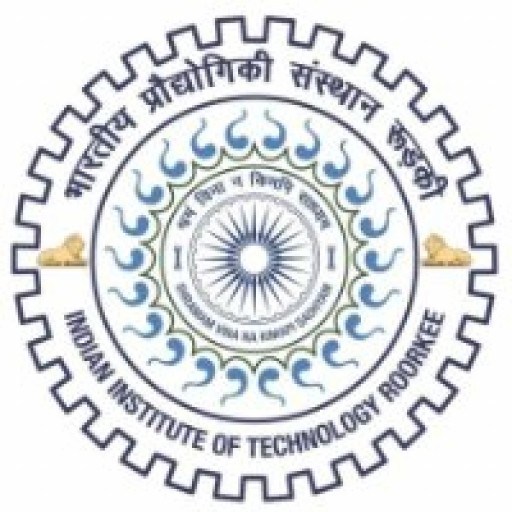Photos of university / #universityofbristol
The MSc in Complexity Sciences at the University of Bristol offers a comprehensive and interdisciplinary approach to understanding the complex systems that shape our world. Designed for students with backgrounds in science, technology, engineering, mathematics, social sciences, or related fields, this programme provides a deep insight into the principles, models, and analytical tools used to explore complex phenomena across various domains. Throughout the course, students will engage with cutting-edge theories and methods, including systems thinking, network analysis, computational modeling, and data analytics, enabling them to analyze, interpret, and influence complex systems in both natural and social contexts. The programme combines rigorous theoretical foundations with practical applications, often involving project-based learning, laboratory work, and collaboration with industry partners. This balanced approach prepares graduates for careers in research, consultancy, policy-making, or further academic study. The curriculum is designed to foster critical thinking, problem-solving skills, and an understanding of the interconnectedness of diverse systems, from ecological networks and biomedical systems to financial markets and social networks. Students will benefit from the university's strong links with industry and research institutions, providing opportunities for internships, networking, and participation in innovative projects. The program emphasizes interdisciplinary collaboration, equipping graduates with versatile skills that are highly sought after in today's data-driven and interconnected world. Graduates of the MSc in Complexity Sciences will emerge with a versatile skill set, a broad scientific perspective, and the ability to address some of the most pressing challenges facing society today through advanced analysis and innovative solutions.
The MSc in Complexity Sciences at the University of Bristol offers a comprehensive interdisciplinary curriculum designed to equip students with a deep understanding of complex systems across various domains. This program explores the fundamental principles of complexity, including nonlinear dynamics, emergent behaviors, network theory, and adaptive systems. Students will engage with a wide range of analytical tools and computational methods to analyze, model, and understand complex phenomena in systems such as biological networks, social systems, economic markets, and technological infrastructures.
The program’s structure combines core modules in complexity theory, data analysis, and computational modeling with optional specialized topics, allowing students to tailor their studies according to their interests and career goals. Core courses typically include Introduction to Complexity, Data Analysis and Visualization, Computational Methods for Complex Systems, and Dynamical Systems. Optional modules may encompass areas like Network Science, Machine Learning for Complex Data, Systems Biology, and Socioeconomic Complexity.
Throughout the programme, students will benefit from practical experience through hands-on projects, laboratory work, and collaborative research opportunities. They will develop skills in programming, data handling, and simulation techniques, enabling them to carry out independent research or work effectively in multidisciplinary teams. The program emphasizes critical thinking, problem-solving, and innovative approaches to addressing real-world challenges posed by complex systems.
Graduates of the MSc in Complexity Sciences will be well-prepared for careers in academia, research institutions, industry, and policy-making where understanding and managing complex systems are crucial. The programme also provides a solid foundation for further doctoral studies in related fields. With access to cutting-edge facilities and expert faculty members, students will be at the forefront of research in complexity science, contributing to advancing knowledge in this dynamic and rapidly evolving field.
The MSc in Complexity Sciences at the University of Bristol is designed to provide students with a comprehensive understanding of complex systems across various disciplines, including physics, biology, social sciences, and computer science. The programme requires students to complete a combination of core and optional modules that cover fundamental theories, methods, and applications related to complexity science. Core modules typically include topics such as nonlinear dynamics, network theory, computational modeling, and data analysis, ensuring students acquire a solid foundation in both theoretical and practical aspects of the field. In addition to coursework, students are expected to undertake a substantial research project or dissertation which involves original investigation into a specific area of complexity science, demonstrating their ability to apply learned concepts to real-world problems. Students must also participate in seminars and workshops designed to enhance their understanding of current research and developments in complexity sciences. Prerequisites for admission generally include a relevant undergraduate degree in science, engineering, mathematics, or social sciences, with sufficient quantitative and analytical skills. The programme is often structured over one year for full-time students, with part-time options available that extend the duration accordingly. To successfully complete the MSc, students need to accrue a set number of credits from modules and research activities, typically culminating in a written dissertation that is assessed by academic staff. Successful graduates will have developed interdisciplinary skills, analytical capabilities, and theoretical knowledge, enabling them to pursue careers in research, industry, and consultancy related to complex systems.
Funding
Up to 10 fully funded studentships are available to UK students on the four-year PhD programme only. EU offer-holders may be entitled to limited funding and should contact the BCCS for further information. Further information on funding for prospective UK, EU and international postgraduate students is available from the Student Funding Office website.
The MSc in Complexity Sciences at the University of Bristol offers a comprehensive exploration of complex systems across various disciplines, including physics, biology, social sciences, and computer science. This programme is designed to equip students with a deep understanding of the fundamental principles that govern complexity in natural and engineered systems. Students will engage with a wide range of topics such as chaos theory, network analysis, data modeling, and emergent phenomena. The curriculum emphasizes interdisciplinary approaches, enabling graduates to apply complex systems methodologies to real-world problems in fields like ecology, economics, health sciences, and technology. The programme features both theoretical coursework and practical research projects, fostering critical thinking and analytical skills. Students benefit from access to state-of-the-art laboratories and computational resources, facilitating hands-on experience in data analysis, simulation, and system modeling. The programme is suitable for students with backgrounds in sciences, engineering, mathematics, or social sciences who seek to deepen their understanding of complexity science principles and their applications. Throughout the course, students are encouraged to collaborate across disciplines, developing innovative solutions and gaining insights into the interconnectedness of modern scientific challenges. Graduates of the MSc in Complexity Sciences are well-prepared for careers in academia, research institutions, industry, and government agencies, where complex problem-solving skills are increasingly vital. The programme also offers pathways to PhD research, with options for continued study within the university's established research environment. Overall, the MSc provides a rigorous and enriching educational experience for those interested in understanding the intricacies of complex systems and contributing to advancements across multiple scientific and technological domains.









